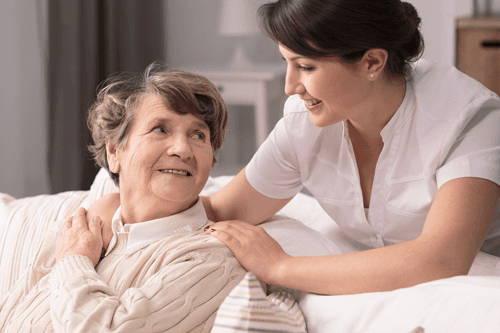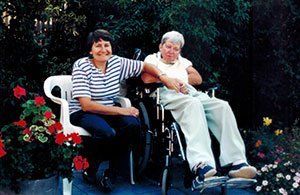How Can I Take Better Care of My Loved Ones Experiencing Incontinence
Written by: Jenn Weesies
Each February everyone puts a lot of effort into demonstrating their feelings towards their loved ones. They make or buy gifts, plan special excursions and recommit their lives to each other. They act in such a way that makes their special someone feel loved, cared for and cherished. Some people though, will argue that this demonstration of affection toward loved ones shouldn’t just occur during February but should happen all year long as well. Caregivers and family members of people experiencing incontinence are constantly striving to provide the best care for their loved ones to demonstrate their affection. However, as many know, caring for their loved one’s unique incontinence situation can be difficult.Incontinence is not uncommon. Urinary incontinence affects more than 200 million people worldwide and nearly 25 million American adults are currently experiencing temporary or chronic urinary incontinence. According to the National Association for Incontinence (NAFC), incontinence characteristically affects more women than men. In fact, one out of four women and one out of eight men experience incontinence.
Enhancing the quality of care you are providing your loved ones experiencing incontinence means improving the quality of control with the right products and right fit at the best price. Here are three ways that can help you demonstrate your affection towards your loved ones experiencing incontinence by ramping up the quality of your care.
1. Buy hospital grade incontinence care products to keep your loved one comfortable. Hospital grade incontinence care products are far superior to the products that you can buy at a local superstore. These products are better quality and can increase your assurance in managing your loved one’s incontinence. They provide the highest level of protection, superior odor protection, the best fit, and the latest technology to quickly draw wetness caused by urinary incontinence away from your loved one’s body. With hospital grade products you can be sure that your loved one will remain dry and comfortable all day long.
2. Buy from a knowledgeable home health care center or medical equipment supply company. Highly regarded home health care centers and medical equipment supply companies focus on ongoing personalized management for your loved one’s unique urinary incontinence situation. They can provide personal support over the phone, online and in the store to find the best incontinence care products for your loved one. Briefs, protective underwear, pads and liners are available in gender specific fits and an array of sizes and protection levels. Home health care centers and medical equipment supply companies can offer insight to customize incontinence care products for your loved one. They can also recommend products that are easy to get on and to change, improving the ease of care. Their knowledge can enhance quality of life for individuals dealing with incontinence and can help caregivers and families provide more supportive care.
3. Enroll in a home delivery program to save money and time. Experienced home health care centers and medical equipment supply companies can connect you with money and time saving options that other stores cannot. The best offer discreet home delivery programs that can supply caregivers and family members with the convenience of on-time supplies at their doorstep with a range of cost effective savings plans. These programs allow you to order the highest quality products in bulk. After all, buying and ordering incontinence care products should not have to take precious time away from spending moments with your loved ones.
Demonstrate your feelings towards your loved one experiencing incontinence all year long through providing them the best care and incontinence care products possible. Seek the help from a knowledgeable home health care center or medical equipment supply company. They have resources and support staff dedicated to making your job easier and your loved ones happy and comfortable.
About the Author Binson’s Home Health Care Centers began in Center Line, Mich. and has grown to the home health care center it is today. Currently, there are centers in Michigan and Florida. For more information about incontinence products and programs call Binson’s at 888-246-7667 or visit: http://www.binsons.com/
article from Content Crooner







